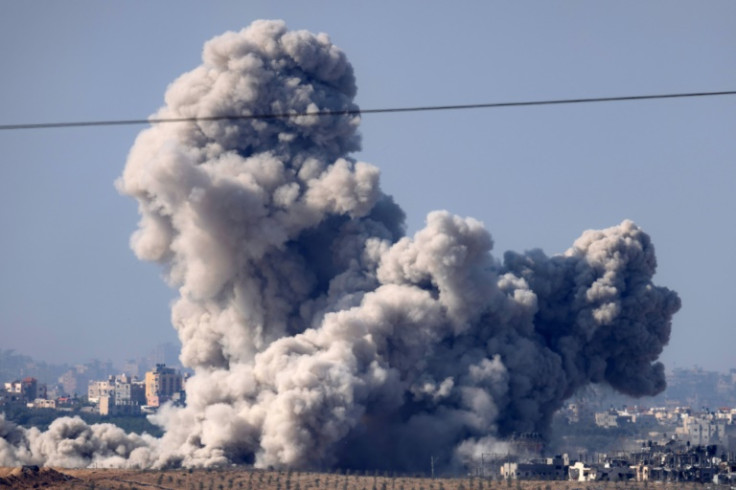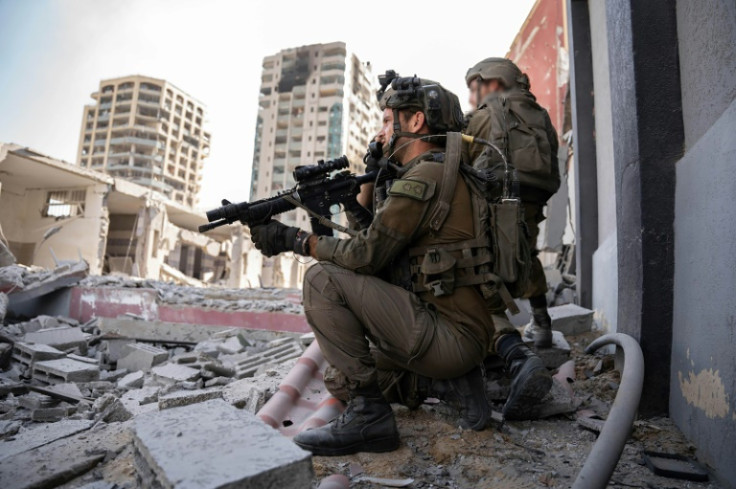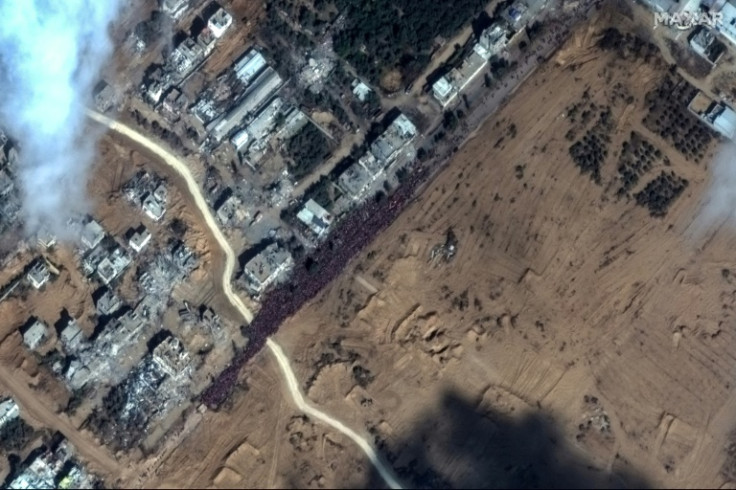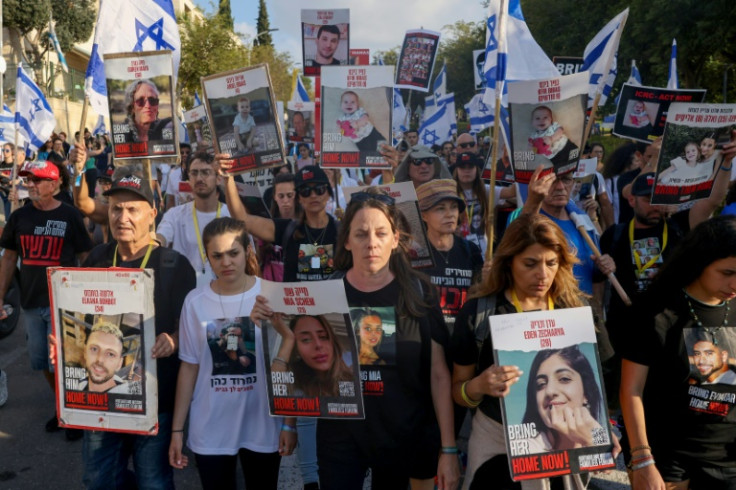Hundreds Flee As Israel Orders Gaza's Main Hospital Evacuated

Hundreds of people fled on foot Saturday after Israel's army ordered the evacuation of Gaza's main hospital where more than 2,000 patients, medics and displaced people were trapped by the war between Israel and Hamas.
An AFP journalist witnessed the movement, on a road leading south, but health officials in the Hamas-ruled territory said 450 patients unable to be moved remained at Al-Shifa hospital. The facility has become the focus of the war that is entering its seventh week after Hamas's October 7 attacks on southern Israel.
Israel has been pressing military operations inside the hospital, searching for the Hamas operations centre it says lies under the sprawling complex -- a charge Hamas denies.
Israel has vowed to destroy Hamas in response to the October 7 attacks which Israeli officials say killed about 1,200 people, most of them civilians, and saw about 240 people taken hostage.
The army's air and ground campaign has since killed 12,000 people, including 5,000 children, according to the Hamas government which has ruled Gaza since 2007.
In Gaza City on Saturday morning, Israeli troops ordered over loudspeakers the evacuation of the Al-Shifa hospital "in the next hour", an AFP journalist at the scene reported.
They called the hospital's director, Mohammed Abu Salmiya, to instruct him to ensure "the evacuation of patients, wounded, the displaced and medical staff, and that they should move on foot towards the seafront", he told AFP.
Israel has come under mounting pressure to back up its allegations that Hamas is using hospitals as command centres, a charge denied by Hamas, an Islamist movement with an armed wing. Al-Shifa hospital has also rejected the allegation.
The United Nations estimated 2,300 patients, staff and displaced Palestinians were sheltering at Al-Shifa before Israeli troops entered the facility on Wednesday.
Israel has told Palestinians to move from the north of Gaza for their safety, but deadly air strikes continue to hit central and southern areas of the narrow coastal territory.
"They said the south was safer, so we moved," Azhar al-Rifi told AFP.
But her family was caught in another strike that killed seven relatives, including her five-year-old nephew.
Nada Abu Hiya, aged eight, said she suffered the third bombing of the war at the Nuseirat refugee camp on Friday.
"There are bombings everywhere," she said. "My grandmother is dead, my mother is dead, my grandfather is dead, my uncle is dead, they destroyed our house. Our neighbours' house is also destroyed and they are all dead."
Israel has imposed a siege on Gaza, allowing just a trickle of aid in from Egypt but barring most shipments of fuel over concerns Hamas could divert supplies for military purposes.
A first consignment of fuel entered Gaza after Israel's war cabinet bowed to pressure from its ally the United States and agreed to allow two diesel tankers a day into the Palestinian territory.
"We took that decision to prevent the spread of epidemics," Israel's national security adviser Tzachi Hanegbi said.
A two-day blackout caused by fuel shortages ended after a first delivery arrived from Egypt late Friday, but UN officials continued to plead for a ceasefire, warning no part of Gaza is safe.
A senior US official said Washington had exerted huge pressure on Israel for weeks to allow fuel in.
The UN agency for Palestinian refugees (UNRWA) said 70 percent of residents have no access to clean water in south Gaza, where raw sewage has begun to flow on the streets.
Under the deal, 140,000 litres (37,000 gallons) of fuel would be allowed in every 48 hours, of which 20,000 litres will be earmarked for generators to restore the phone network, the US official said.
A communications blackout hampered aid deliveries, UNRWA said. Humanitarian chief Martin Griffiths told the UN General Assembly that fuel supplies to the agency so far were "a fraction of what is needed to meet the minimum of our humanitarian responsibilities".
The Hamas health ministry said 24 patients had died in 48 hours due to the lack of fuel for generators.
"I was asleep and we were surprised by the strike. At least 20 bombs were dropped," Imed al-Mubasher, 45, told AFP.
His wife Sabrin Mussa said: "All of a sudden, the house caught fire. I found myself with gravel in my mouth and I immediately looked for my husband and daughters.
"I saw human remains everywhere," and screamed for help, she said.
The Israeli military has yet to respond to a request for comment.
Israel has come under scrutiny for targeting hospitals in northern Gaza, but says the facilities are being used by Hamas -- a claim rejected by the group and medical staff.
The military says it has found rifles, ammunition, explosives and the entrance to a tunnel shaft at the hospital complex, claims that cannot be independently verified.
Israeli Prime Minister Benjamin Netanyahu has said, without providing details, that there were "strong indications" hostages may have been held at the Shifa facility.
Israel has not recovered hostages at the hospital but said it found the bodies of two kidnapped women not far away.
The remains of kidnapped woman soldier Noa Marciano, 19, were found at "a structure adjacent to Al-Shifa hospital" on Friday, a day after the body of 65-year-old Yehudit Weiss was recovered.
In Gaza, more than 1.5 million people have been internally displaced, and Israel's blockade has left civilians facing the "immediate possibility of starvation", according to World Food Programme head Cindy McCain.
More than half of Gaza's hospitals are no longer functional due to combat, damage or shortages, and people are waiting four to six hours for half the normal portion of bread.






© Copyright AFP 2024. All rights reserved.




















